It was just after 6am on March 24, 1998, when Ron Bradley realised his daughter had gone. Minutes earlier, from the bed of his cabin aboard the Rhapsody Of The Seas cruise ship, he had glimpsed her through the open balcony door – asleep, alone, legs outstretched on a lounger.
Amy Lynn Bradley, 23, had been dancing late into the night with her younger brother, Brad, before slipping back into the cabin they were sharing with their parents to smoke on the balcony and watch the sunrise.
Yet now the lounger was empty. Amy’s yellow shirt was folded over a chair, her shoes on the balcony.
The ship, carrying more than 2,000 passengers, was sailing towards the Caribbean island of Curacao. Despite extensive searches on board and on Curacao, no trace of Amy was ever found. No body, no clothing other than that yellow shirt – and no sign she had fallen or jumped.
Her disappearance represents one of the most haunting missing persons cases in American history. This year, Netflix highlighted the case with Amy Bradley Is Missing, a hit three-part documentary that reignited global fascination.
It investigated two conflicting theories: that Amy fell overboard, or that she was abducted and sold into sex trafficking. It featured interviews with crew, family and security officials and eerie photos of a woman resembling Amy that circulated online years later.
Today, speaking publicly for the first time, the Bradley family’s private investigator Jim Carey, 61 – a retired American police officer who has spent four years retracing Amy’s final hours – claims Netflix omitted crucial details. He insists the series has set back his investigation and reveals his leading theory: one involving gangs, corrupt police and failings by the cruise firm Royal Caribbean.
Carey also claims he was told just last year that Amy is still alive.
Above all, he’s offended by Netflix’s suggestion that Amy could have jumped – or accidentally fallen – overboard.
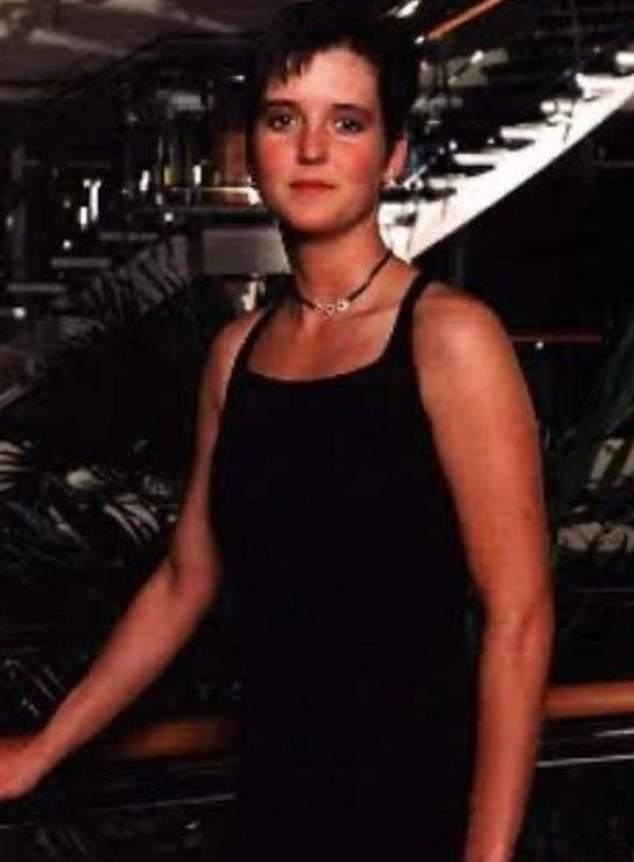
Amy Bradley disappeared from Royal Carribean’s Rhapsody of the Seas. Despite extensive searches on board and on Curacao, no trace of Amy was ever found
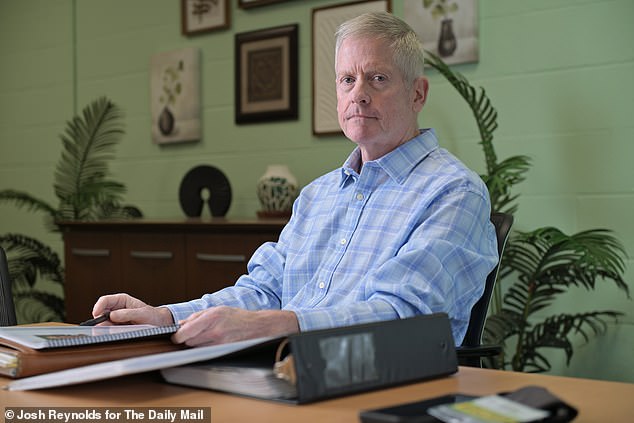
The Bradley family’s private investigator Jim Carey – a retired American police officer who has spent four years retracing Amy’s final hours
‘I’m 100 per cent certain she was taken,’ he tells me flatly, when we meet near his home in Boston, Massachusetts.
‘She was taken – watched, selected, delivered and sold.’
He has, he insists, sifted through all the evidence: security logs, key-card records and witness accounts. According to his version of events, Amy’s final night wasn’t the prelude to a tragic accident but the execution of a monstrous plan.
When Amy embarked on that fateful holiday, she was in high spirits. She was celebrating her degree in sports psychology from Virginia’s Longwood University. Her father had won an all-expenses-paid cruise from his employer.
The night before she disappeared, the ship had docked in Aruba, an island neighbouring Curacao. ‘Security in 1998 was lax to the point of insanity,’ Carey says. ‘You could walk on or off [the ship] with barely a glance. People got on that ship in Aruba who weren’t passengers.’ One of them, he believes, was there for a purpose.
That evening, Amy and brother Brad joined other young passengers at the ship’s nightclub. The house band, Blue Orchid, played a late set. Among its members was a tall black musician everyone called Yellow due to his dyed hair – real name Alistair Douglas.
Amy was seen dancing with him, laughing. Later, she and Brad returned to their cabin and sat smoking on the balcony. She told Brad she would sleep outside.
It was around 5.30am that their father first stirred, looked out and saw Amy asleep on the lounger. He dozed off again and when he woke half an hour later, she had vanished. What happened in that sliver of time remains the mystery at the heart of the case. One passenger, Elizabeth Lewis – later interviewed by the FBI – said she saw Amy and Douglas together just before 6am. She claims she watched him take a lift to the bar before returning with ‘a dark drink’, which he handed to Amy.
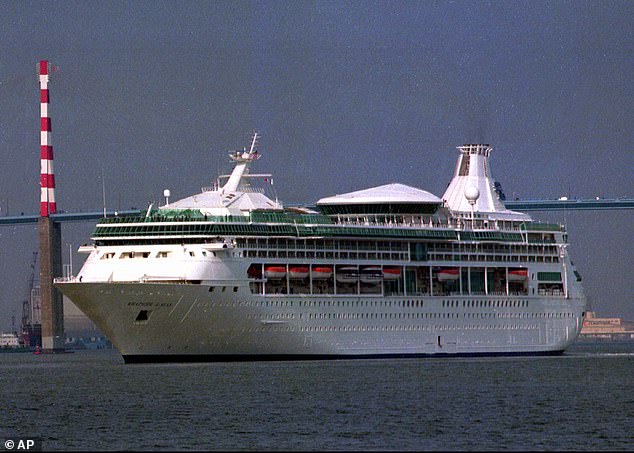
The Rhapsody of the Seas. Carey believes Amy was abducted between 5:30am and 6.15am as the ship neared port in Curacao
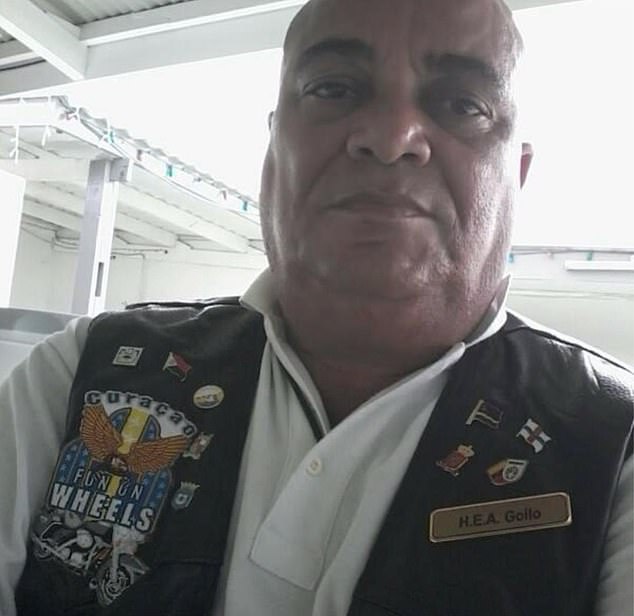
Among the men Carey believes handled Amy is ‘Herman Goilo’, a clerk at the police station in Curacao at the time of her disappearance, who insisted last year that Amy was still alive
Carey believes Amy was abducted between then and 6.15am as the ship neared port. ‘They drugged her,’ he says. ‘They put her in a container – the type used for musical gear, laundry or trash – and took her off the side. Douglas was the handler,’ he claims. ‘The buyer or receiver was waiting below. The guy who took her had already boarded in Aruba.’ Douglas was a suspect in the initial investigation – the FBI grilled him extensively and he agreed to take a polygraph test, which was inconclusive.
No charges were filed against him. Yet, according to Carey, the investigation was bungled. When initially interviewed by Ship Security Chief Lou Costello, Douglas told him he had returned to his cabin at 1am. But data from the Locklink system, which records when key cards are used to enter cabins, suggest otherwise. He, in fact, returned to his room at around 1am, then again at 3.30am.When approached by the Daily Mail, Douglas said only that he left the club at 1am. According to Carey, Douglas’s daughter told him her father came home from the cruise with photos of ‘white women from the ship’ – including one of Amy and her brother in formal wear. A bandmate allegedly arrived at the house ‘pale and shaken’, telling Douglas’s pregnant wife: ‘He did something really bad.’ Douglas has refused to comment on those allegations.
After searching for Amy on his own, Ron woke her mother Iva while son Brad reported Amy missing. Around 6.30am, the family asked crew members to prevent passengers leaving the ship in Curacao – and to make an emergency announcement. They were told that it was ‘too early’ – a delay that Carey and the Bradley family believe cost precious time.
Finally, at 7.50am, the ship broadcast a message: ‘Will Amy Bradley please come to the purser’s desk?’ But by this time, passengers had already begun disembarking for the day in Curacao.
There was still no sign of Amy, so between 12.15pm and 1pm the crew conducted a full search of the ship, finding nothing. Shortly before the Rhapsody departed for next stop St Lucia that evening, the Bradleys left the ship in hope of finding Amy in Curacao. They said they had grown frustrated with the ship’s officers’ obstructive behaviour and that of a lawyer acting for the cruise company. It was two days before FBI agents boarded the ship.
A four-day search in the surrounding waters and along the cruise route turned up no leads.
Throughout this time, Carey believes Amy was on Curacao, having been passed to a taxi driver he knows as ‘Dechi’. He believes Dechi was a small-time drug courier – who only realised too late that he was complicit in trafficking a woman and panicked.
For, two weeks after Amy’s disappearance, Dechi approached Ron and Brad in a hotel lobby on Curacao and told them: ‘Your daughter didn’t fall off that ship. She is on this island.’
He gave them three locations – each reportedly hotspots for trafficked women. ‘Dechi freaked,’ Carey says. ‘Then he tried to tell Amy’s dad where she was.’ He has since taken whatever he knew to his grave – last year Carey discovered Dechi had died of cancer.
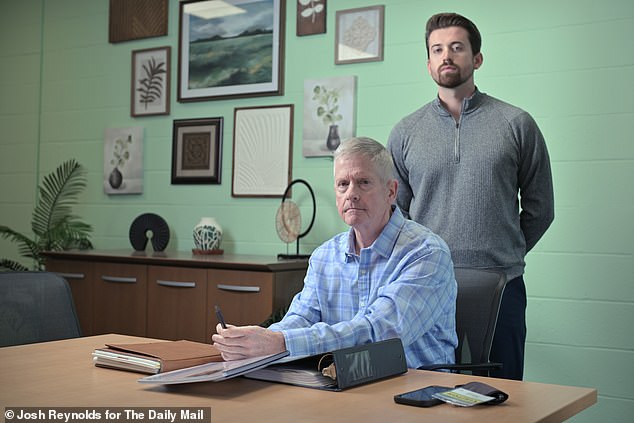
Jim and his son Brodie, who speaks the Papiamento dialect of the Dutch Caribbean islands, work alongside a former Virginia state attorney, sharing intelligence with US and island authorities in the hope that the investigation is picked up again
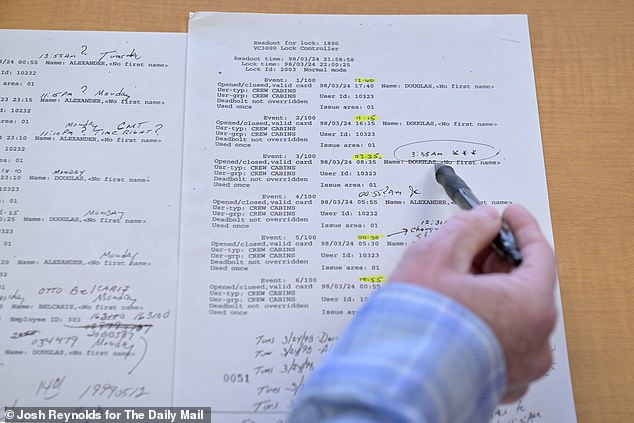
A record of key card swipes on board. Carey believe that Bradley was kidnapped and sold into a human trafficking ring after she went missing
According to Carey, Amy was held for a while on Curacao, a former Dutch colony, before being moved through a trafficking corridor that snaked between other Dutch islands and Venezuela.
Among the men Carey believes handled Amy, he names for the first time ‘Herman Goilo’, a clerk at the police station in Curacao at the time of her disappearance, who insisted last year that Amy was still alive. Goilo was never mentioned in the Netflix documentary – something Carey finds ‘baffling’. Goilo first contacted the family in 1999, claiming he had seen Amy several times.
Interrogated then, Goilo claimed Amy looked ‘fine’ but ‘different’. He said she seemed to be ‘on drugs’, did not smile and that he recognised her tattoo – a Tasmanian Devil spinning a basketball on her shoulder blade. He said he knew where she was being held, demanding $50,000 for her release.
His account was so detailed that Ron Bradley found the money and Interpol drafted a contract for the deal in June 2000 for Amy’s safe release, which Goilo signed. But when Interpol flew in to arrange a handover, he never showed up. So, in October 2024, Carey, his son Brodie and two other investigators, travelled to Curacao to confront Goilo. Asked whether Amy was alive, he answered: ‘Yes she is, but a very different woman. They got her hooked on drugs.’
He said the last time he had seen or spoken to Amy was in 2016. He claimed she was with ‘a very dangerous man, a drug dealer with a long reach on this island’, but refused to identify him.
‘We must have given him 20 chances to come clean,’ Carey recalls. ‘We told him if he wasn’t being truthful, to just say so. But he looked straight at us and said Amy Lynn Bradley was alive.’
If Goilo is telling the truth, he could hold the key to finding her. But he’s now refusing to co-operate. He did not respond when contacted by the Daily Mail.
Carey considers two other sightings credible: one by a Canadian diver who saw a frightened young woman on a Curacao beach in 1998 and another in 2005 in Barbados, when a woman whispered to an American tourist: ‘My name is Amy. I’m from Virginia.’
Carey believes he has traced the men with her to an American trafficking network with Dominican and Sicilian ties. The Daily Mail knows the identity of the men but has chosen not to name them.
He barely contains his frustration at the Netflix documentary. ‘Yes, it put Amy’s name out there again,’ he admits. ‘But it also did a lot of damage.’
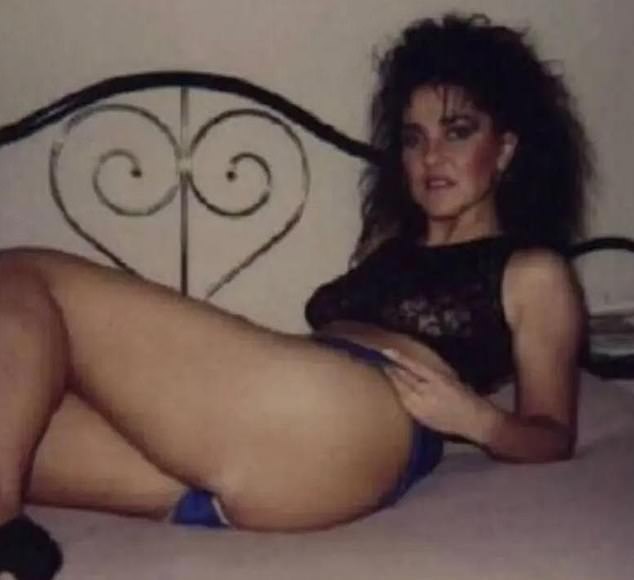
Carey has been delving into 2005 photos from a Caribbean escort website which a forensic analyst concluded could depict Amy
Carey claims the series was wrong to imply that Amy’s parents had an issue with her sexuality – she came out as gay at college. He said the suggestion was intrusive and misplaced, and used as a possible explanation for her state of mind. The programme noted that she had allegedly drunk seven ‘light’ beers and was feeling unwell when her brother left her on the balcony at around 3.30am. Some contributors speculated that Amy’s drinking was a sign of emotional stress. Carey calls that interpretation ‘an attempt to impose modern attitudes on to a 27-year-old case’. ‘Her sexuality had nothing to do with anything. They turned her into a troubled girl. She wasn’t. Her parents knew who she was. Did they love everything? Maybe not. But they dealt with it. This was a very close family.’
He also claims Netflix hindered his investigation by revealing that every year at Christmas and Thanksgiving, a mystery user logs on to view the family’s online campaign website AmyBradleyIsMissing.com from Bridgetown, Barbados – one of the places Amy had been ‘sighted’. Some suggested this could be Amy’s captors checking in to see how the investigation is going.
‘They gave up our technique,’ says Carey. ‘We were building a pattern. Then Netflix puts that out and now those guys know we’re watching. So they’ve stopped.’
Carey has also been delving into 2005 photos from a Caribbean escort website – featured in the Netflix series – which show a dark-haired woman in lingerie who bears an uncanny resemblance to Amy. A forensic analyst concluded that the images, taken in what appears to be a tropical hotel room, could depict her. But when Carey traced the company behind the site, the trail abruptly went cold.
Carey has been chasing answers – unpaid – since 2021. He and son Brodie, who speaks the Papiamento dialect of the Dutch Caribbean islands, work alongside a former Virginia state attorney, sharing intelligence with US and island authorities in the hope that the investigation is picked up again. A GoFundMe set up by Amy’s family covers the expenses Carey cannot afford.
What makes his investigation harder, in his view, is that he is operating in places where many police are either compromised or frightened. ‘Everyone’s got their reasons for not telling the full truth. Curacao’s small, everyone knows everything,’ he says. ‘There is a lot of human trafficking in those islands,’ he says.
So why is he doing it? ‘We just hope to get some closure for the family,’ he says.
Carey is aware that this very closure might bring up new horrors: ‘I’m sensitive to that and I’m not looking forward to the day I give it to them. But they deserve it.’

